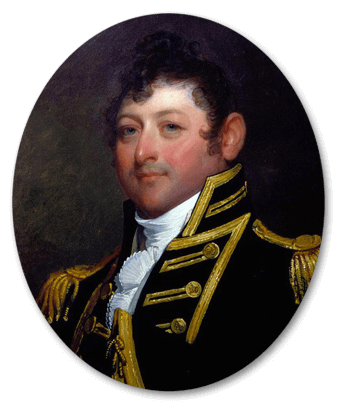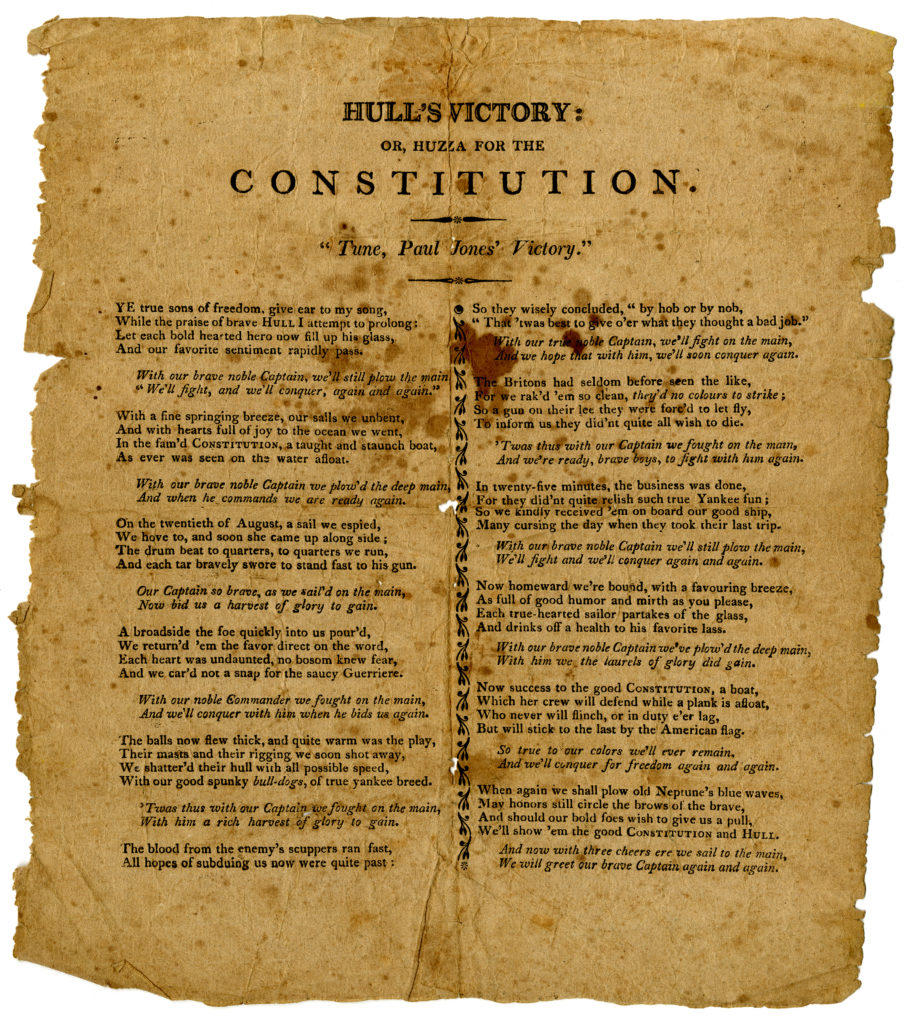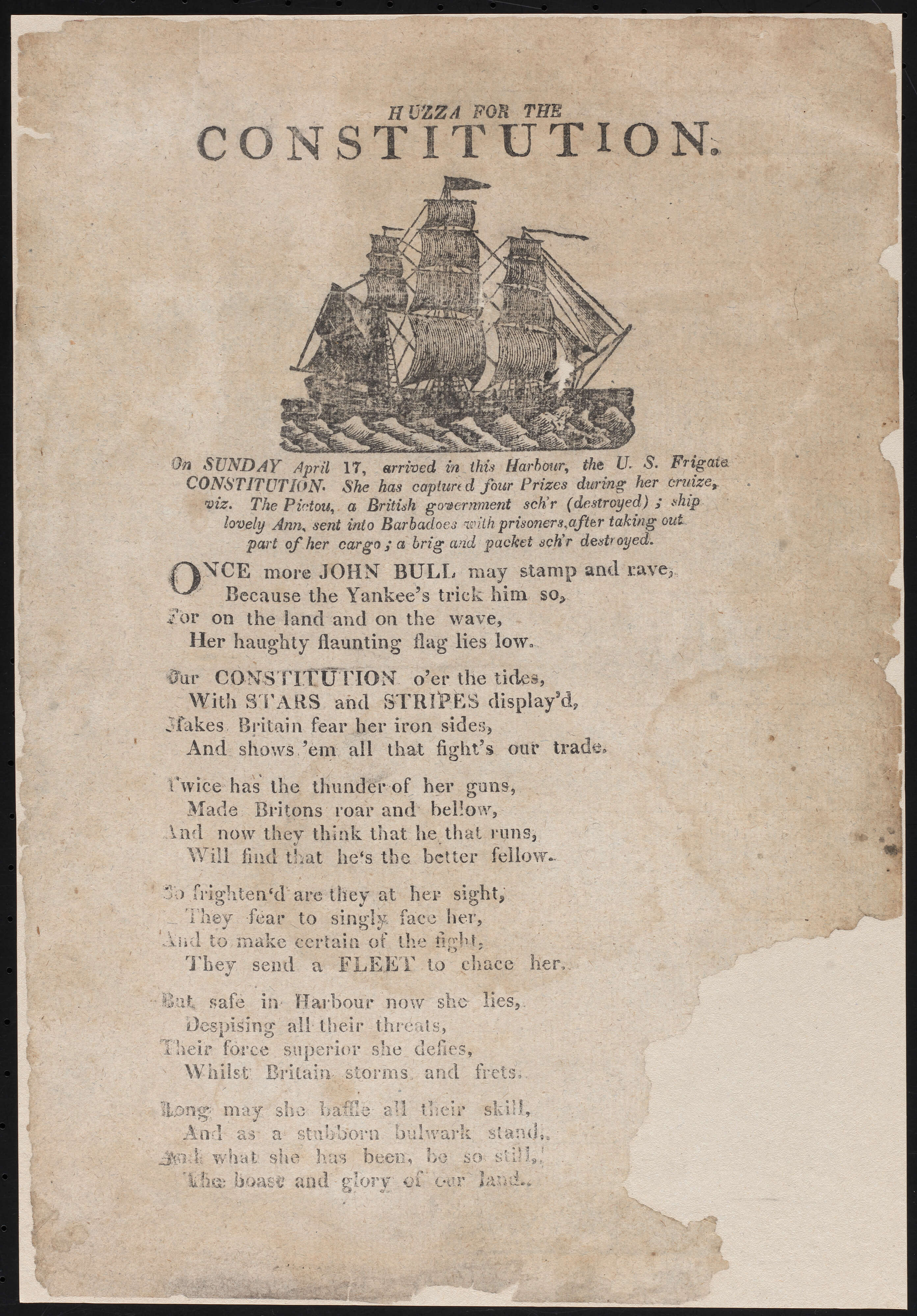
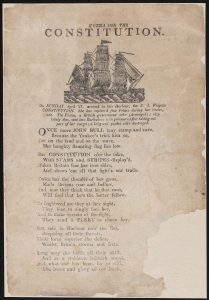
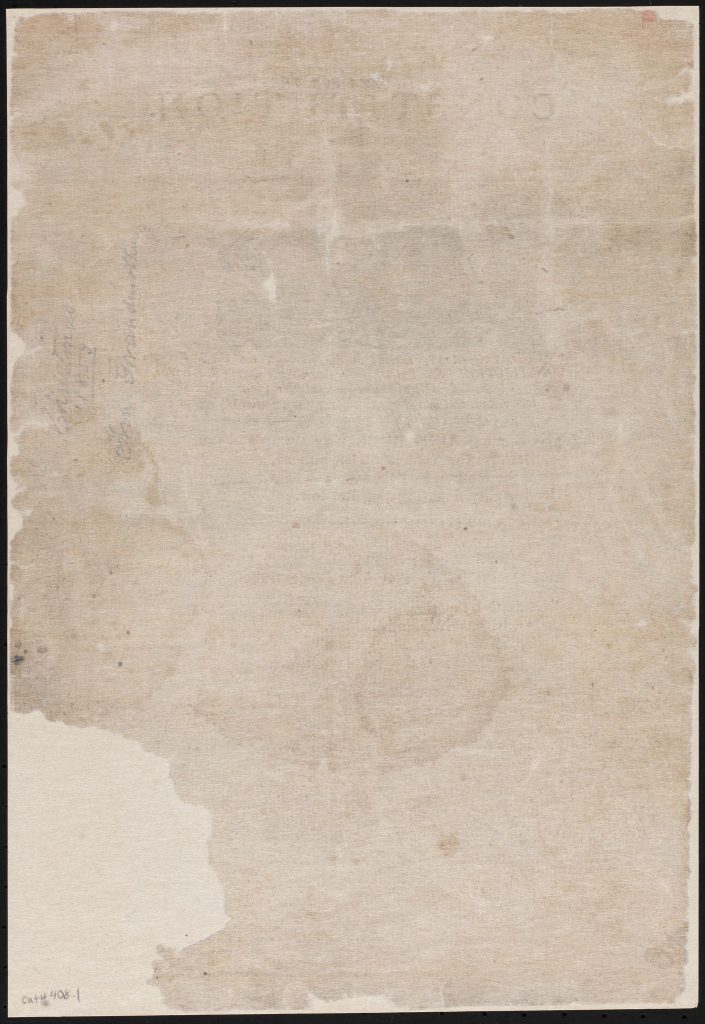
Huzza for the Constitution
Broadsides are oversized printed sheets containing proclamations, announcements, or advertisements. They were publicly posted or distributed door to door. This broadside with a six-stanza poem commemorates USS Constitution‘s arrival in Boston Harbor on April 17, 1814 after her recent War of 1812 exploits. With patriotic fervor, the unidentified poet praises Constitution‘s prowess and jeers at the inability of the British fleet to capture her. The poem represents not just a commercial or literary endeavor, but a statement of patriotic pride. The woodcut illustration at the top shows Constitution in full sail.
On August 19, 1812, approximately 600 miles east of Boston, USS Constitution earned a place as arguably the most famous warship in United States history. Late that day, HMS Guerriere, a 38-gun British frigate under the command of Captain James Richard Dacres, battled Captain Isaac Hull’s Constitution. By sunset the Royal Navy ship had been disabled by cannon fire and surrendered. Though the victory was of little strategic importance in the War of 1812, it was a symbolic moment for America. It served to raise the morale of a nation suffering from several military setbacks and boosted the confidence of the U.S. Navy. The fight also gave Constitution the famous nickname “Old Ironsides.” Later, in January 1814, Constitution evaded the British blockade of Boston and sailed to the West Indies, where she captured HMS Pictou, the British merchant ship Lovely Ann, a brig, and a packet schooner. “Old Ironsides” returned to Boston in April of 1814.

